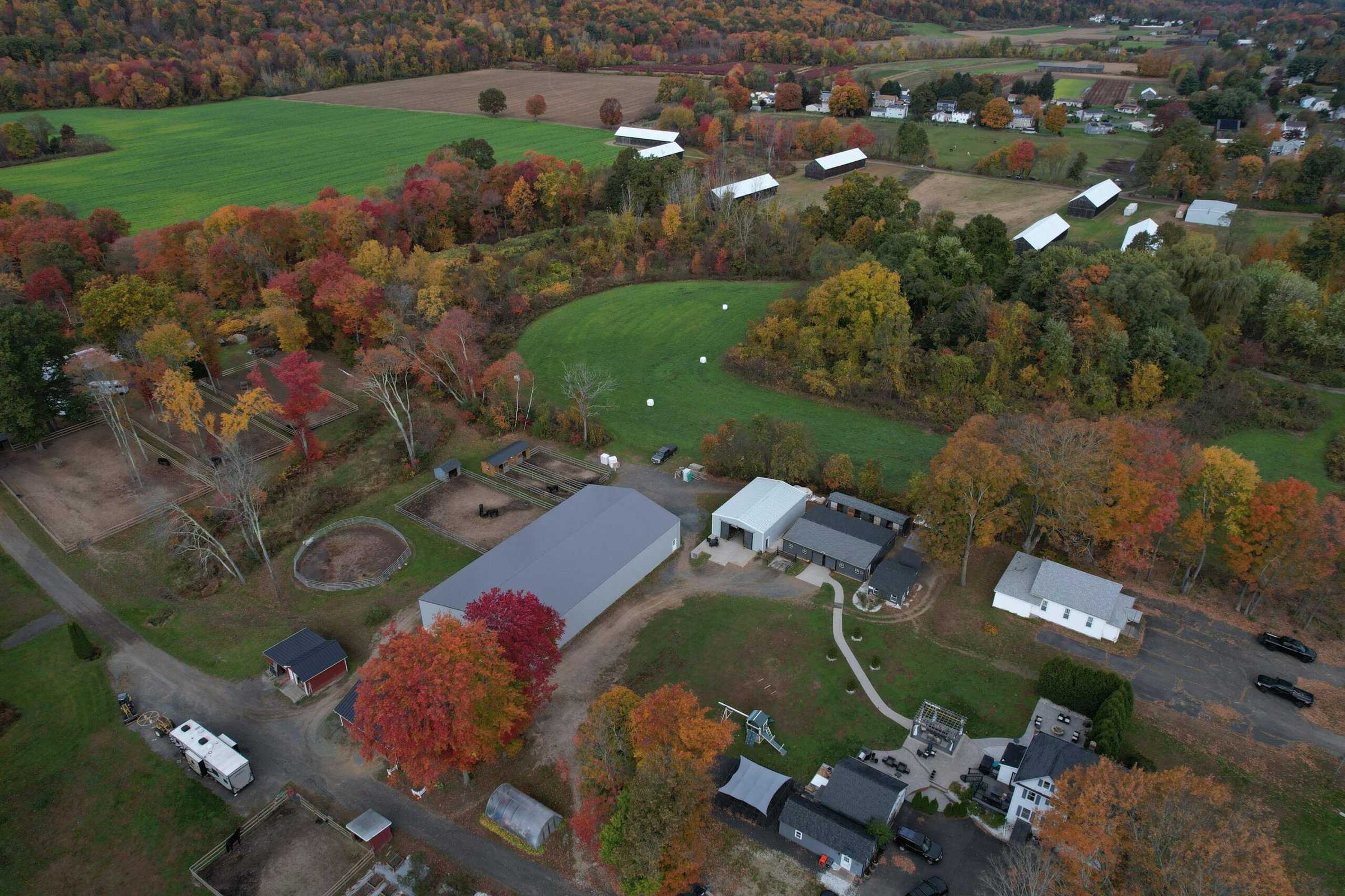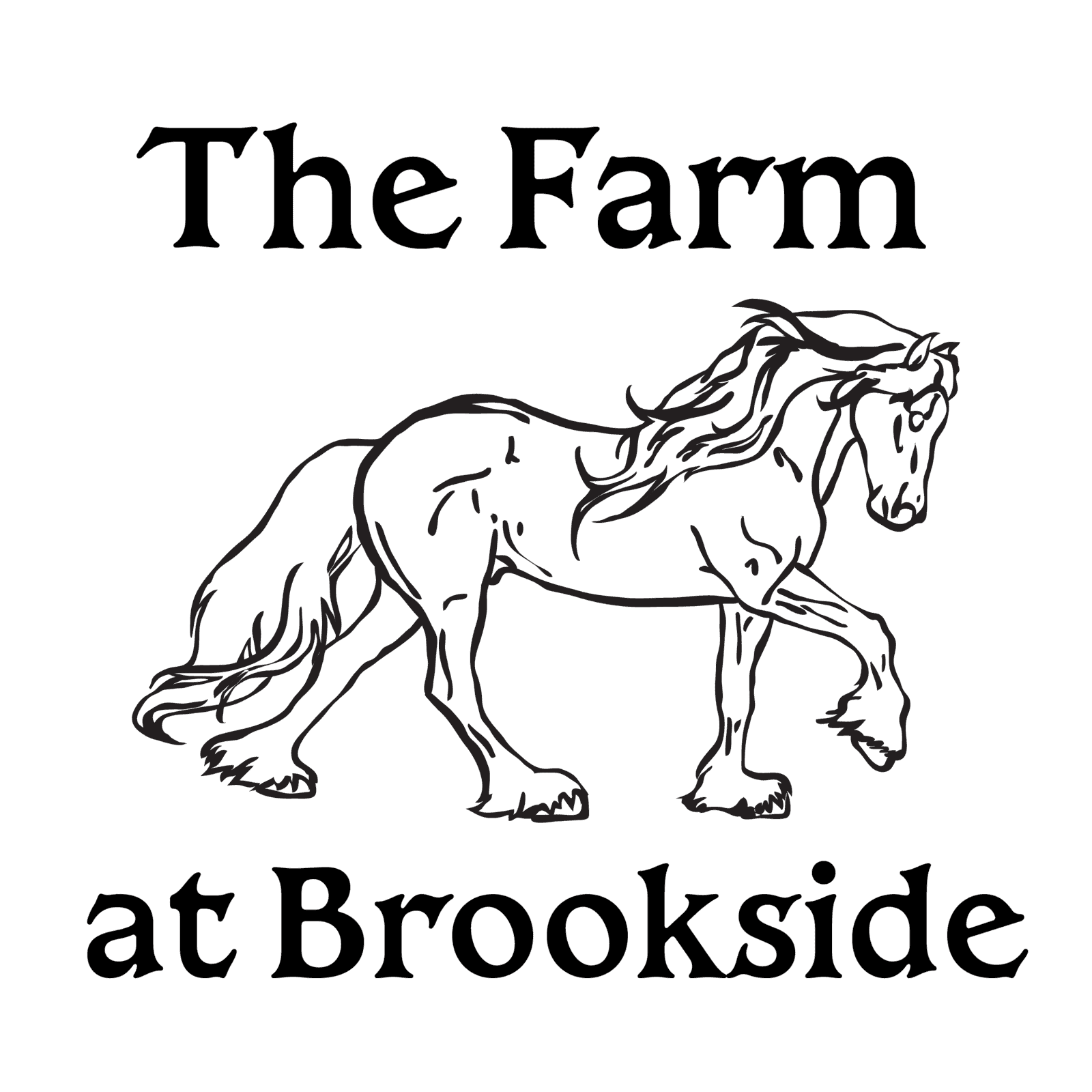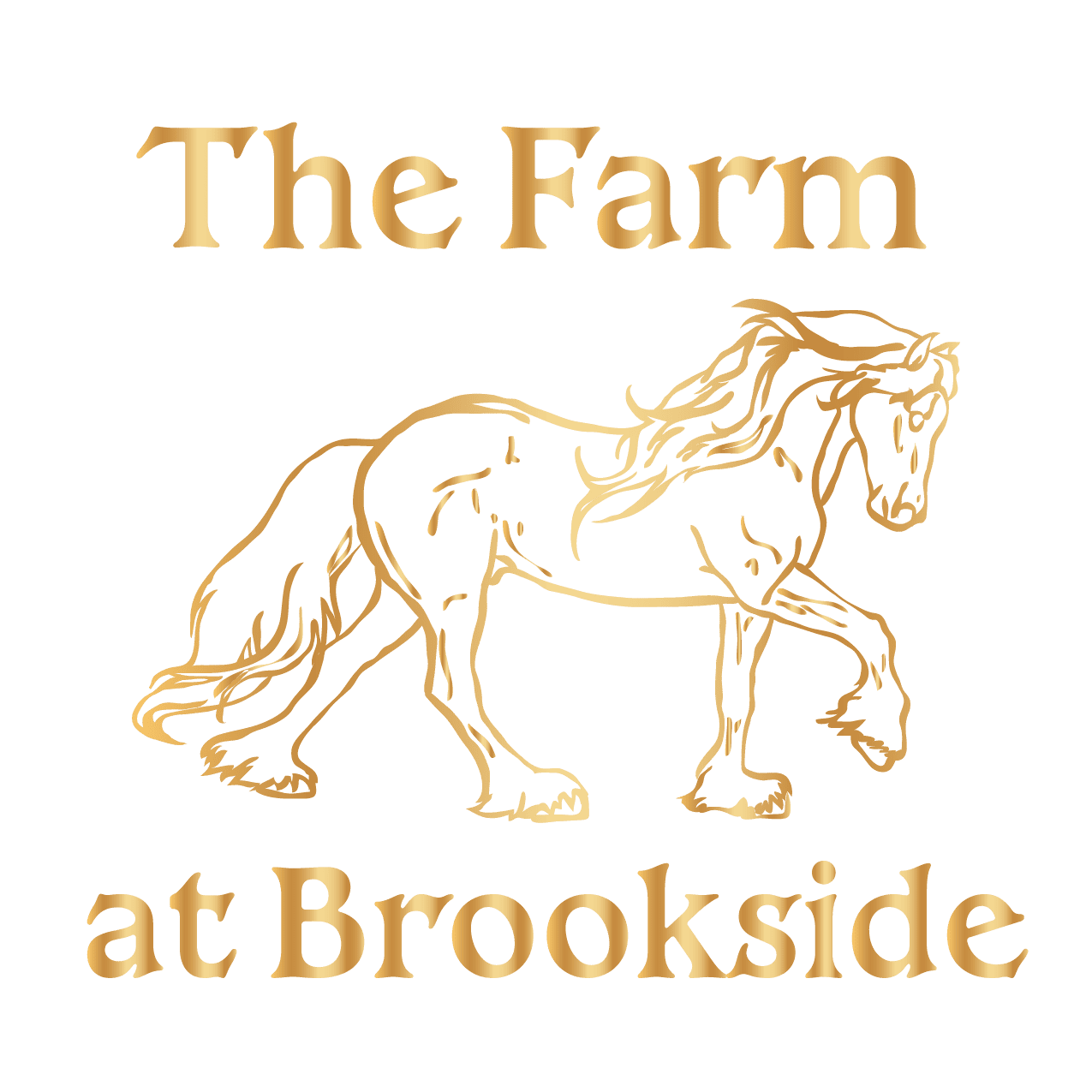
Table of Contents
Horse boarding is a valuable solution for equestrians who lack the space, resources, or time to care for a horse at home. Whether you’re a first-time horse owner or a seasoned rider, choosing the right horse boarding facility is crucial to your horse’s health, safety, and well-being. At The Farm at Brookside, we understand the significance of creating a nurturing environment for both horses and their humans. To help you make the best decisions, we’ve compiled a comprehensive guide featuring 15 essential horse boarding tips.

1. Understand Your Horse’s Needs First
Before even stepping foot on a property, evaluate your horse’s specific needs. Does your horse need daily turnout? Is it prone to allergies and requires a low-dust environment? Is your horse social and thrives in group turnout? Tailoring your search for horse boarding around your horse’s personality, health, and training regimen can be a good first step toward a positive boarding experience.
2. Choose the Right Type of Boarding Arrangement
Horse boarding isn’t one-size-fits-all. Some popular options include:
- Full Board: The facility usually provides feeding, turnout, stall cleaning, health monitoring, and sometimes training.
- Partial Board: You handle some of the care responsibilities.
- Self-Care Board: You’re responsible for all daily care, but have access to the facilities.
Evaluate what suits your lifestyle, budget, and experience level.
3. Visit Multiple Facilities
Never settle on the first facility you find. Visit several horse boarding stables in person. Observe the cleanliness, talk to staff and current boarders, and trust your instincts. The atmosphere and condition of the facility should align with your standards of care.
4. Prioritize Cleanliness and Maintenance
A clean, well-kept stable isn’t just more pleasant—it reduces the risk of illness and injury. Look for:
- Fresh water and clean feeding areas
- Regularly mucked stalls
- Well-maintained fencing and pastures
- Safe, debris-free riding arenas
First impressions matter. If a boarding facility can’t maintain a clean environment, it might not be worth your investment.
5. Assess the Turnout Conditions
Turnout is essential for a horse’s mental and physical health. When assessing a boarding facility, ask questions like:
- How many hours of turnout are provided?
- Are horses turned out in compatible groups?
- Are pastures rotated to avoid overgrazing?
6. Observe Feeding Practices
Consistent, high-quality nutrition is critical. Ask about:
- Feeding schedules and grain options
- Hay quality and sourcing
- Availability of special feed programs (Don’t forget to ask whether the barn allows owners to supply their own feed or supplements.)
7. Inquire about Emergency Care Protocols
Horse boarding means trusting others to care for your horse in your absence. It’s vital to ask:
- What happens if a horse gets injured or sick?
- Is there a vet on-call?
- How quickly are owners contacted?
- Are staff trained in basic first aid?
Your peace of mind depends on knowing your horse will be cared for in any situation.
8. Check Facility Security and Supervision
Horses are valuable animals, and security is a must. Look for:
- Secure fencing and locked gates
- Cameras or on-site personnel after hours
- Supervision during turnout
- Visitor policies
9. Evaluate the Arena and Training Spaces
If you ride regularly, a quality riding space is key. Ask about:
- Arena footing and maintenance
- Availability of jumps or trail obstacles
- Indoor vs. outdoor options
- Lighting for evening rides
A well-maintained riding arena shows a facility’s commitment to safety and progress.
10. Ask about the Barn Culture
Horse boarding isn’t just about the horse—it’s about the people too. Ask yourself:
- Are boarders welcoming?
- Is there a culture of mutual respect?
- Are there trainers on-site or allowed in?
- Are clinics and events offered?
The best horse boarding stables (for your horse and you) foster a community that shares your values and goals.
11. Review the Contract Carefully
Always request a boarding agreement in writing. Look for details like:
- Monthly fees and what they include
- Cancellation policies
- Hours of operation
- Liability waivers
Make sure everything is clearly outlined to avoid future misunderstandings.
12. Understand the Barn’s Schedule and Rules
Every facility has its own routines. It’s important to understand:
- Turnout and feeding schedules
- Quiet hours or restricted access times
- Rules about riding, grooming, or use of shared spaces
Understanding the schedule and rules upfront can prevent conflicts and ensure you’re a good fit for the barn.
13. Talk to Other Boarders
No one gives better insights than current boarders. Ask them:
- How long they’ve been at the facility
- What they like most and least
- How the management handles concerns
A happy group of boarders is usually a sign of good management and reliable horse care.
14. Plan for Seasonal Care
Consider how the barn handles extreme weather. Ask about:
- Blanketing policies
- Indoor riding access during winter
- Fly control strategies for summer
- Shelter in pastures
15. Trust Your Gut
Ultimately, your instincts matter. If something feels off during your visit or the answers you receive are vague or dismissive, consider this a red flag. A horse boarding experience should feel like a partnership, not a compromise.
Bonus Tip: Stay Involved
Even after you’ve chosen the perfect horse boarding facility, remain involved in your horse’s care. Visit frequently, communicate with staff, and monitor your horse’s condition and behavior. Boarding is a collaboration, and your active role ensures your horse gets the best possible experience.
Choosing the right horse boarding facility is one of the most important decisions you’ll make as a horse owner. Use these tips to guide your search and ensure your horse enjoys the happiest, healthiest boarding experience possible.
Why Choose The Farm at Brookside?
Located in Feeding Hills, Massachusetts, The Farm at Brookside offers limited spots for training/boarding services rooted in compassion, professionalism, and a deep respect for the equestrian lifestyle. Our facility is designed to support training of Friesians for annual inspection (keuring), training of stallions for stud collection, groundwork (foundational) training, under saddle training, behavioral modification, and training for fitness and conditioning. In addition, our facility offers limited spots for rehabilitation services for all breeds. Caring staff, top-tier amenities, and an inclusive community of fellow horse lovers are essential to the services we provide.
From carefully maintained pastures to individualized feeding programs, we go above and beyond to offer a welcoming and secure environment. When you entrust your horse to us, you’re not just a client—you’re part of the Brookside family.
Ready to schedule a visit or learn more about our horse training and horse boarding options at The Farm at Brookside? Visit thefarmatbrookside.com and connect with us today!
Sources:
McNeill, Camryn (Mad Barn). “6 Tips for Choosing a Boarding Barn for Your Horse – [Guide].” madbarn.com. 25 September 2024 (published), 31 March 2025 (updated). https://madbarn.com/how-to-choose-an-equine-boarding-facility.
Kenny, Laura (Penn State Extension). “Tips on selecting a boarding farm.” michiganfarmnews.com. 5 March 2024. https://www.michiganfarmnews.com/tips-on-selecting-a-boarding-farm.



